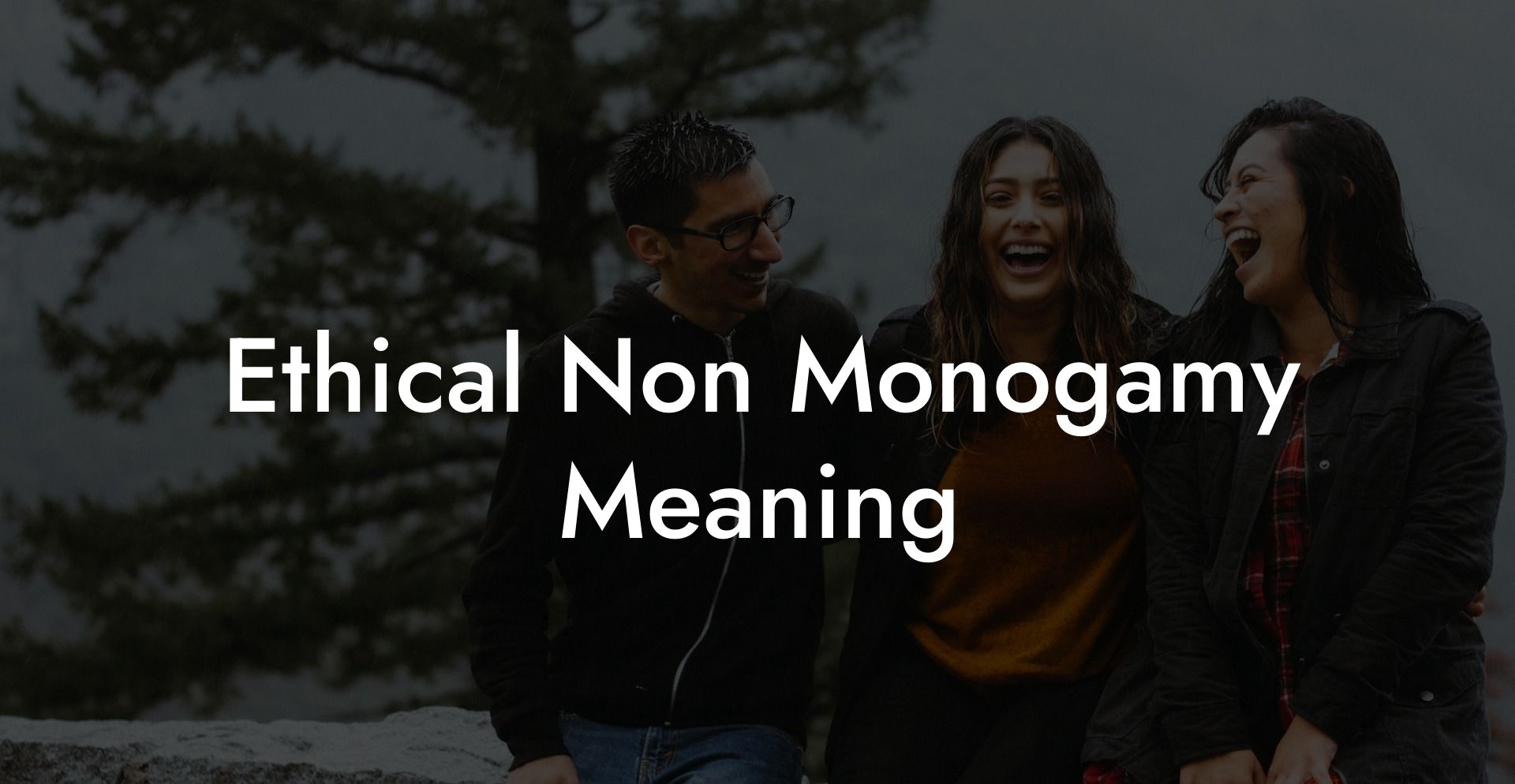Are you curious about the concept of ethical non-monogamy? Have you wondered whether it's a lifestyle choice that might suit you or your relationship? This comprehensive guide will delve into the meaning of ethical non-monogamy, explore its various forms, and provide real-life examples to help you make an informed decision.
Ethical Non Monogamy Meaning Table of Contents
What is Ethical Non-Monogamy?
Ethical non-monogamy (ENM) is an umbrella term used to describe a range of consensual, non-monogamous relationship dynamics. In these relationships, all partners are aware of and openly communicate about the non-monogamous nature of their arrangement. This distinguishes ENM from cheating or deception, as everyone involved knows and accepts the parameters of the relationship.
Some common forms of ethical non-monogamy include:
Polyamory
Polyamory involves multiple romantic relationships in which love, emotional intimacy, and often physical intimacy are shared. People in polyamorous relationships can have multiple partners, either individually or as part of a group. Polyamorous relationships come in many forms, such as hierarchical (where one relationship takes priority over others) or non-hierarchical (where all relationships are considered equal).
Swinging
Swinging generally refers to couples who engage in consensual sexual activities with other couples or individuals. Swinging is often focused on the physical and sexual aspects, and emotional connections may be limited or discouraged to avoid complications.
Open Relationships
An open relationship allows partners to seek romantic or sexual connections outside of their primary relationship. The level of emotional connection and intimacy allowed may vary, and couples often establish clear boundaries to protect the primary relationship.
Relationship Anarchy
Relationship anarchy is a philosophy that rejects the idea of prescribed relationship structures and norms. Those practicing relationship anarchy place emphasis on personal autonomy and individual consent, allowing relationships to develop without predefined expectations.
Key Principles of Ethical Non-Monogamy
While every ethical non-monogamous relationship is unique, there are some essential principles that help to ensure the well-being of everyone involved:
- Consent: All partners must agree to the non-monogamous arrangement and communicate their boundaries and preferences.
- Communication: Open and honest communication is crucial for maintaining trust and ensuring everyone's needs are met.
- Respect: Each person's boundaries, desires, and feelings must be respected and valued.
- Honesty: Being truthful about your experiences and emotions helps to maintain the integrity of your relationships.
- Flexibility: Adapting to changes and accommodating each other's evolving needs is key in maintaining healthy relationships.
Ethical Non Monogamy Meaning Example:
John and Jane have been in a monogamous relationship for five years and decide they would like to open up their relationship to explore new experiences and connections. They have discussed their boundaries, agreeing that emotional connections with other partners are acceptable but must not interfere with their primary relationship. Both partners are open to pursuing individual connections and as a couple.
John meets Kate and feels a strong connection with her. He communicates openly with Jane about his feelings and intentions. Jane acknowledges John's connection with Kate and gives her consent. While John and Kate explore their relationship, John continues to prioritize his relationship with Jane and communicate with her about his experiences with Kate.
This scenario demonstrates an open and honest dynamic where John and Jane prioritize their primary relationship and maintain consent, communication, and respect with one another and their other partners.
Now that you're equipped with a deeper understanding of the ethical non-monogamy meaning, you can make an informed decision about whether it's an arrangement that might work for you or your relationship. At The Monogamy Experiment, we are dedicated to providing comprehensive guides to help you navigate the complex world of relationships. If you found this article helpful, please feel free to share it and explore our other guides for more insights into monogamy, non-monogamy, and polyamory.













